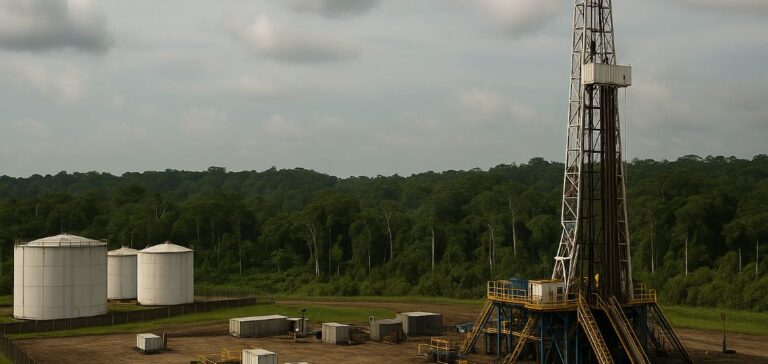State-owned company Petroecuador announced on May 5 that it has awarded a drilling contract to the Chinese group China Petroleum & Chemical Corporation (Sinopec) in the Ecuadorian Amazon, valued at approximately $105mn. The project is expected to boost national production by 12,000 barrels per day (bpd), amid a continuous decline in extraction volumes across the country.
A targeted operational plan in two Amazonian provinces
The contract includes the simultaneous deployment of six drilling rigs in the provinces of Orellana and Sucumbíos, located in the northeastern region of the country. According to Petroecuador, the initiative is expected to generate at least 2,500 local jobs, though no details were given regarding contract durations or employment terms. This effort is part of a broader strategy to revive declining national oil output.
Declining production and reliance on exports
Ecuador’s oil production has dropped from 563,000 bpd a decade ago to around 464,000 bpd today, due to the progressive closure of wells and a lack of consistent investment in the sector. Petroleum revenues brought in approximately $8.6bn for the Ecuadorian economy in 2024, according to official data.
An additional tender process is underway for further drilling projects in Amazonian oil fields, Petroecuador added. These operations aim to slow the structural decline of the national oil industry.
Presidential visit to the UAE and recent incidents
Ecuadorian President Daniel Noboa, recently re-elected, visited the United Arab Emirates the previous weekend with the goal of establishing new partnerships to strengthen the oil sector.
In March, Ecuador experienced its worst oil spill in years, with over 25,000 barrels of crude released into three rivers in the coastal province of Esmeraldas, near the Colombian border. The incident temporarily halted crude transport and export operations across the country.






















